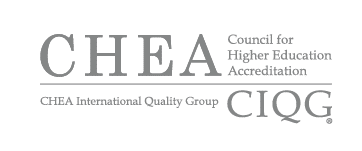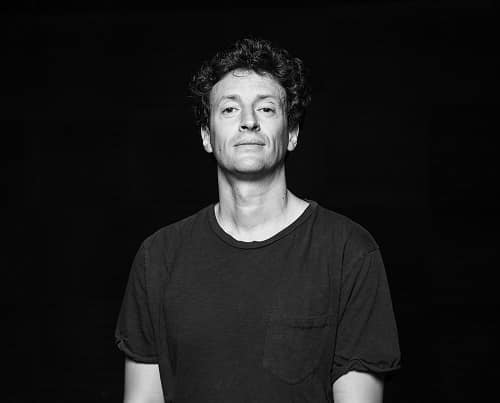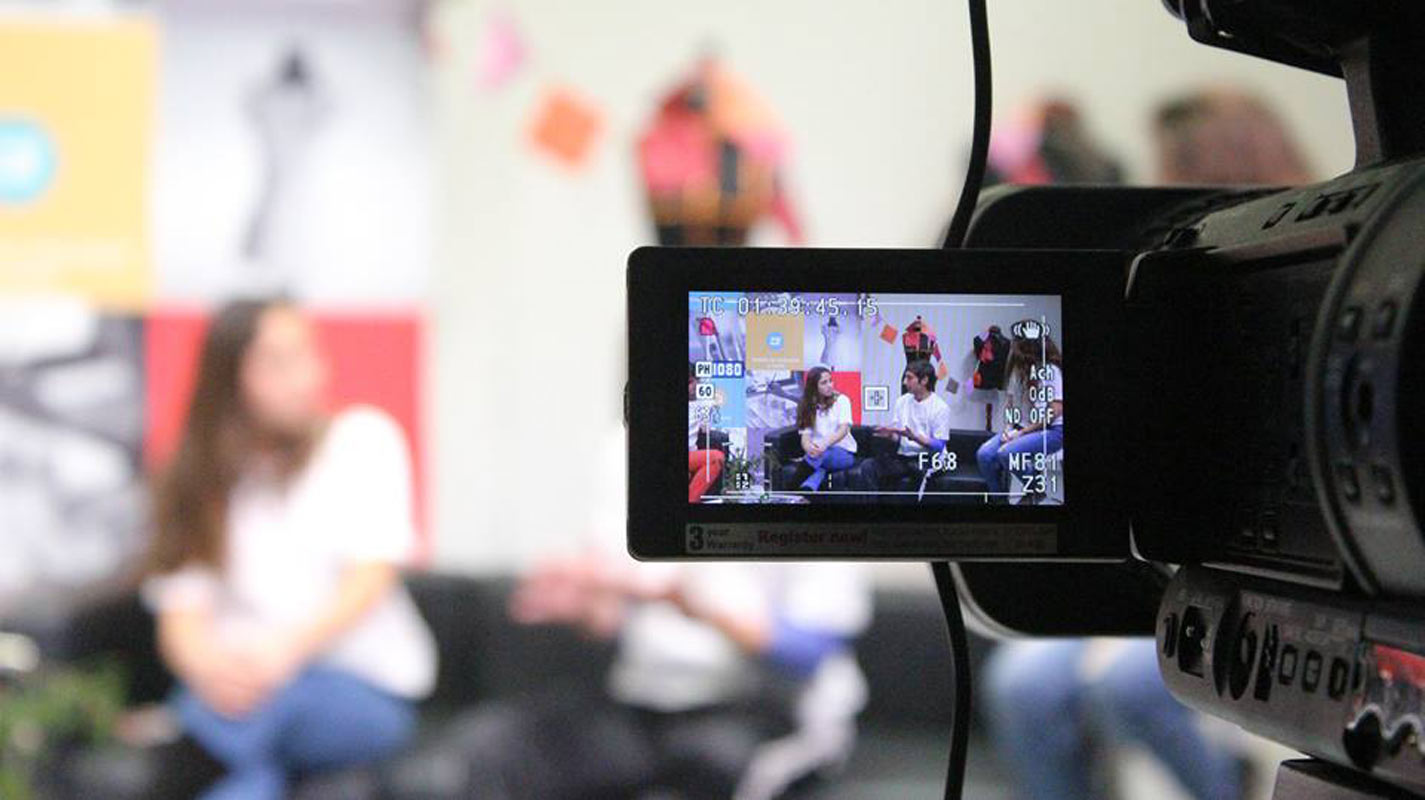
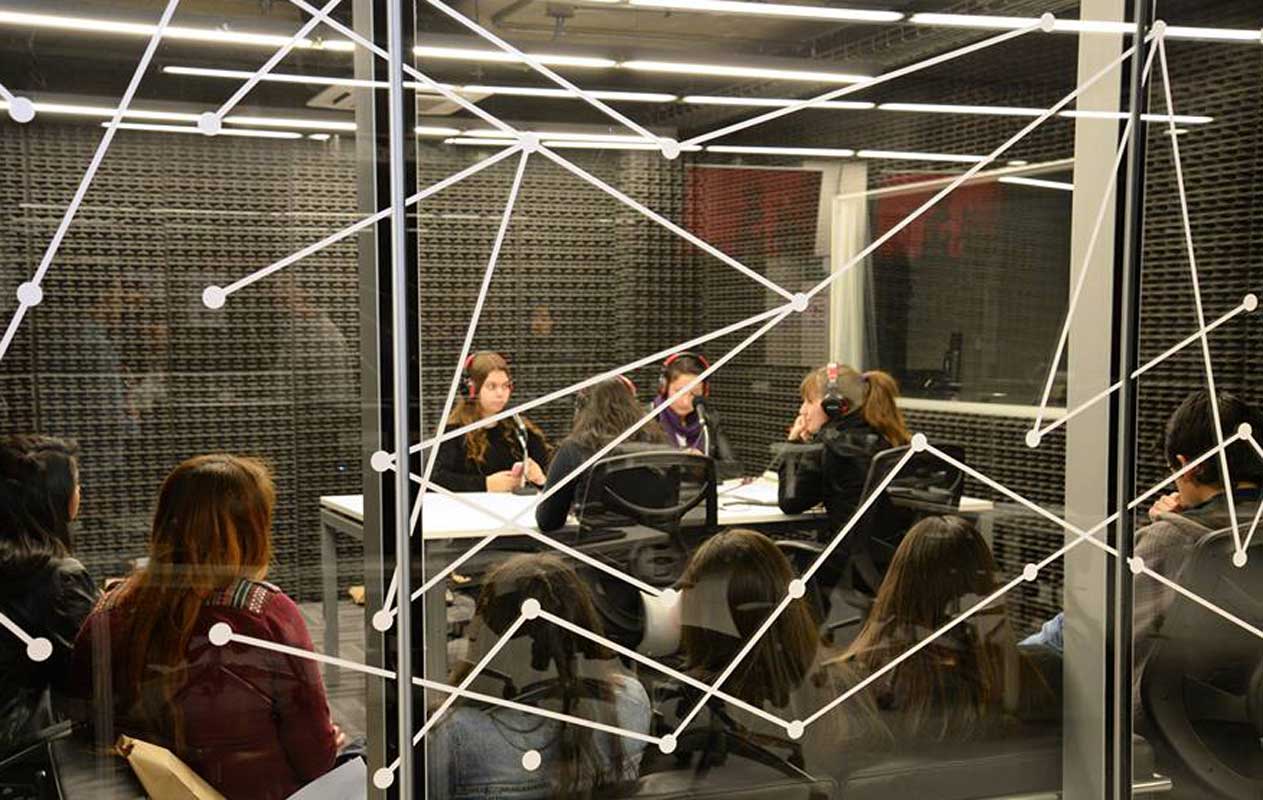
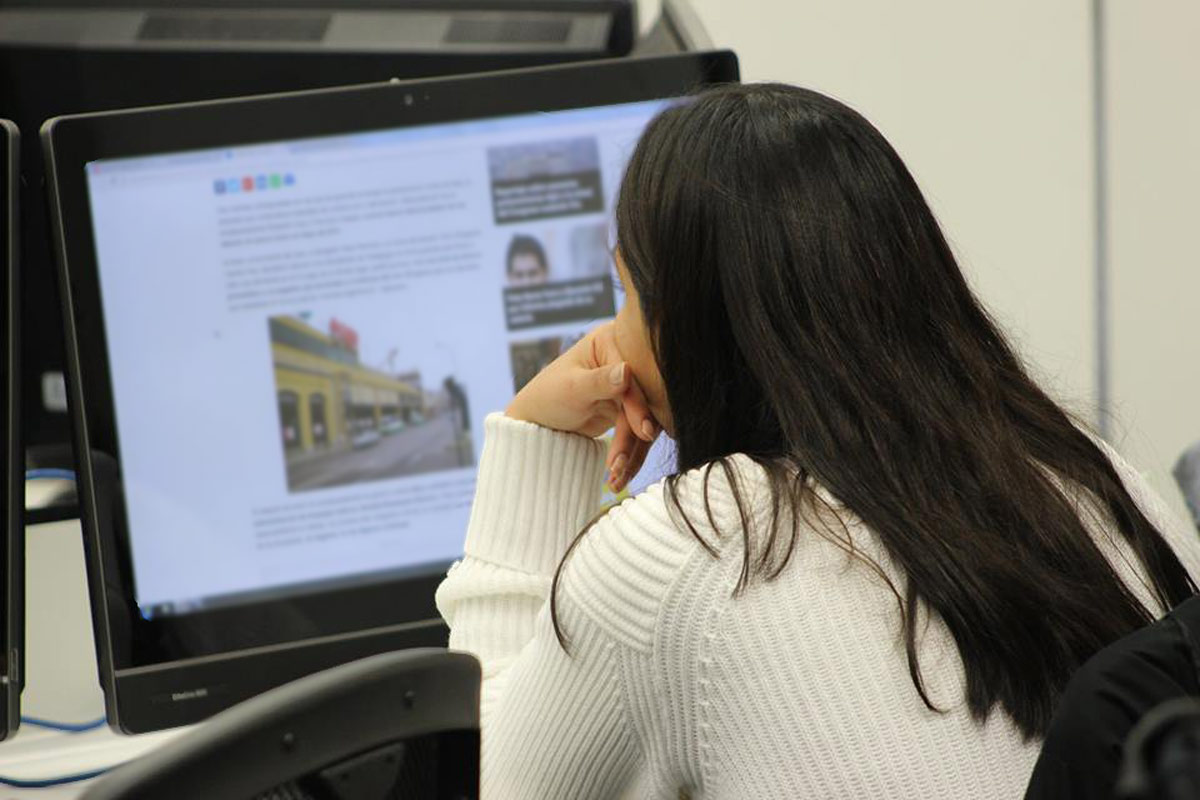
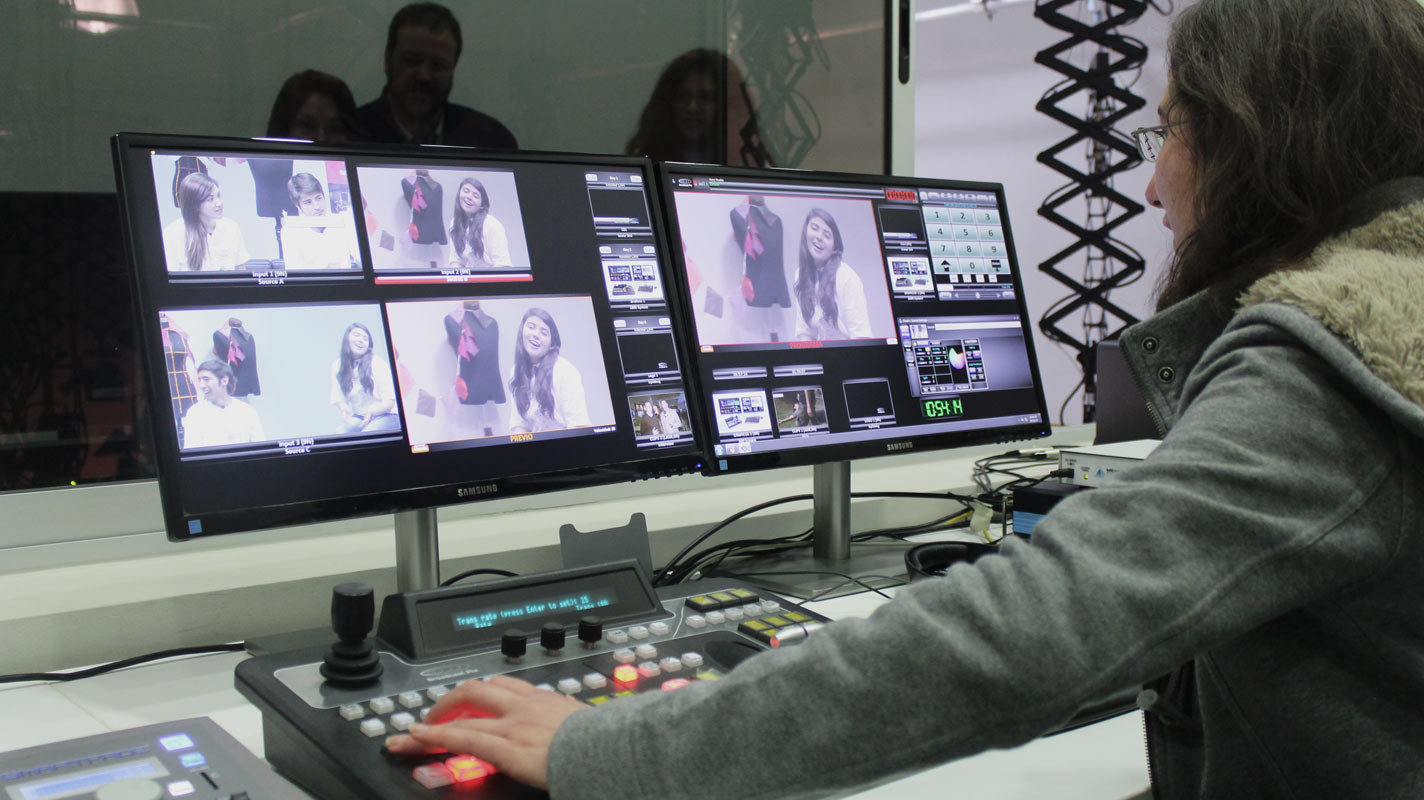
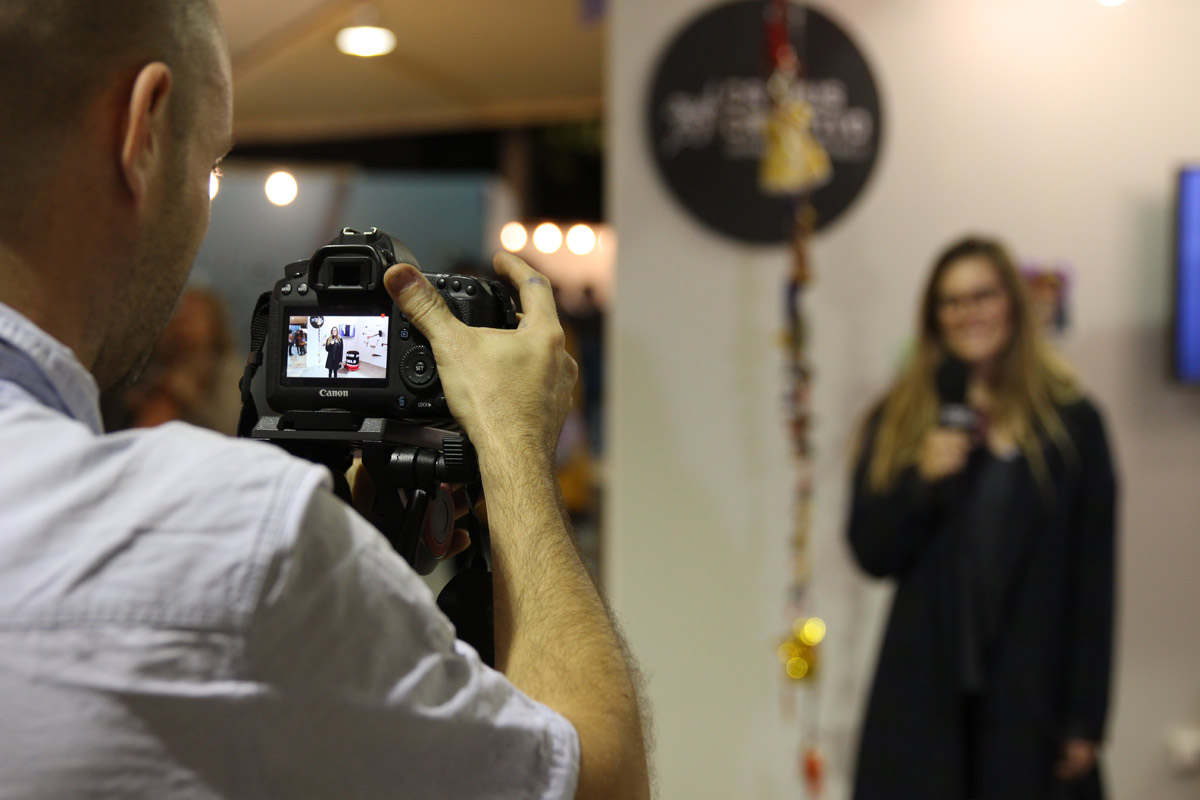
Journalism
Innovation in the teaching-learning system with state-of-the-art technology in a pioneering cultural environment. We train leaders in information creativity, entrepreneurship, and research: Journalism at the Creative Campus.
Degree
Bachelor's Degree in Social Communication
(8 semesters)
Professional Degree
Journalist
(9 semesters)
Duration
4.5 years
Campuses
Santiago
- Program Description
- Why study this career at the Creative Campus
- Characteristics of the Creative Campus Journalist
- Occupational Field
- Graduate Profile
- Career plan (Decree)
- Professionals capable of working in any media, approaching the message in an innovative and multimodal manner.
- Versatile, capable of researching, analyzing, and developing journalistic content to use it in 360º.
- Social responsibility with a critical, inquisitive, and creative spirit.
- Ability to manage, create and develop their own ventures to bring a global vision to communication spaces.
- Ranked among the best in the country according to América Economía 2019.
You will become a versatile contemporary journalism professional. - Social responsibility with a critical, inquisitive, and creative spirit.
- Capable of managing, creating, and developing their own ventures to bring a global vision to communication spaces.
- The internationalization experience is possible through language courses, intensive programs, and exchanges in prestigious institutions worldwide.
- Capable of working in traditional and digital media at any stage of the productive or creative chain.
- Capable of working in public and private organizations in activities related to analysis, research, design, implementation, and management of communication plans.
- Equipped with tools and knowledge to create their own ventures based on innovation, creativity, and commitment to social responsibility.
- Bilingual and able to understand and communicate in English at the b2 level, according to the Common European Framework of Reference.
Graduates of the Journalism programs at Universidad Andrés Bello will be able to work in traditional and digital media. Concurrently, they will analyze and research the design, implementation, and management of communication plans in public and private spheres. They will also lead and participate in disciplinary and interdisciplinary groups and design communication strategies in the informational, strategic, commercial, cultural, and academic areas.
Graduates of the Journalism program at Universidad Andrés Bello are professionals capable of crafting communication and information strategies that allow them to produce multimedia content for written, radio, and audiovisual media in informative, strategic, commercial, cultural, and academic areas; and conduct investigative journalism from an ethical perspective and editorial social responsibility. They use creative disciplines as a tool to manage knowledge at a local and global level, developing proposals and projects from an interdisciplinary perspective.
Graduates of the Social Communication program reflect on the challenges of contemporary journalism through case analysis, data management, and its relationship with the social sciences.
The curriculum of the Journalism program at Universidad Andrés Bello organizes its Learning Outcomes in the following areas of action:
I. Field of Action: Interdisciplinary Culture Projects
- RdA 1.- Integrate and synthesize the main phenomena, discussions, conflicts, and changes that determine today’s contemporary cultural reflection in different fields of knowledge.
- RdA2.- Use management tools to evaluate the generation of sustainable, innovative proposals in developing projects and enterprises.
- RdA 3.- Create procedures and products through conceptual and technical resources to work in and integrate disciplinary and interdisciplinary contexts.
- RdA 4.- Design projects based on interdisciplinary issues that contribute to responding to complex phenomena in specific contexts.
II. Field of Action: Media and Journalistic Projects
- RdA 1: Produce content for the construction, management, and administration of information with editorial and ethical social responsibility, oriented to different audiences.
- RdA2: Build critical thinking for understanding and interpreting cultural, social, political, economic, and communicational phenomena.
III. Field of action: New Communication Trends and Formats
- RdA 1: Construct messages and news and communication items and stories for different media formats and platforms, with rigorous use of language, an ethical attitude, and creative capacity.
- RdA 2: Develop journalistic research on topics of national and international interest in different areas of social communication and practicing the profession in public and private spaces and self-management or entrepreneurship.
IV. Scope of action: General Education and English
- RA1: Develop critical thinking through argumentation, using oral and written language appropriate to the academic and professional environment, and using a method based on criteria, facts, and evidence.
- RA2: Relate academic training to the local environment from the principle of social responsibility, considering the ethical dimension of daily practices, everyday speech, and professional practice.
- RA3: Develop research projects with their respective ethical considerations, according to quantitative and qualitative methodological approaches recognized by their disciplinary area, effectively utilizing information technologies.
- RA4: Develop communication skills in English to function in daily, work, and academic contexts.
Learn about the curriculum of the Journalism program of the School of Architecture, Arts, Design, and Communications.
Download the decree here



